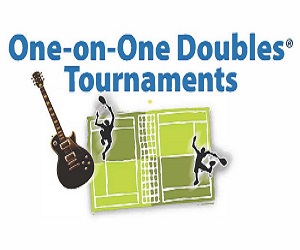Beyond the Baseline: Ed Krass, College Tennis Exposure Camps
As Ed Krass embarks on the 35th year of his College Tennis Exposure Camp, he looks back at the journey that led him here

This summer, the College Tennis Exposure Camp will once again be held at various locations across the country, ushering in the 35th year of this one-of-a-kind tennis experience.
The College Tennis Exposure Camp is the only camp in the country taught exclusively by college head coaches which creates a unique opportunity for both junior tennis players who seek to play college tennis, as well as college coaches who are eager to learn from their peers.
“Ed Krass’ College Tennis Exposure Camps provide prospects with the ultimate opportunity to showcase their skills and learn from college head coaches in a fun, energetic, and inclusive environment,” said Wouter Hendrix, the former men’s tennis head coach at Lehigh University. “I’ve seen so many players succeed at the collegiate level – including at Lehigh – thanks to the knowledge they gained at the College Tennis Academy. A true championship coach, Ed Krass provides the experience of a lifetime that will greatly enhance your game as well as your access to the world of college tennis.”
There are a number of testimonials similar to this given by coaches and players alike on the impact the camps have had, and a lot of the reasoning behind those positive experiences comes from the aforementioned Ed Krass who founded the camp nearly four decades ago. Krass has combined his vast knowledge of tennis, especially collegiate tennis, with his strong passion and energy for helping people, which has resulted in almost 40 years of the camp. 
Krass’ coaching experience dates back to the early 1980s following his time competing atop the University of Central Florida starting lineup. He played first singles and was a captain in his final two seasons at UCF.
During his playing career, Krass would spend his summers teaching at Harry Hopman’s International Tennis Academy. This helped him make a little spending money, an always-important part of college life, but also provided him with invaluable coaching experience.
“It was an amazing experience,” Krass recalls. “Not only did it help me with out with expenses, but also allowed me to learn from some top coaches as well as top-notch junior and professional players. After I was done playing at UCF, the Athletic Director asked me if I had any coaching experience. I told him that I did, and they offered me the position of assistant coach.”
It would only be a few months later that Krass would be promoted to head coach, and at just 22-years-old, he was leading a group of young men who were only a couple of years younger than he was.
“They couldn’t believe I was coaching them, but they saw I was serious and passionate,” Krass says. “Despite me being very young, they embraced my coaching style. I knew how to motivate and push them in practices.”
Krass helped guide UCF to some great seasons as its head coach including finishing his first season as the sixth-ranked team in the nation in Division II. He was ready to continue building that program, but when the athletic department budget at the university dried up, Krass was told there was no salary available, and so he left.
He would work as Rick Macci’s assistant at the Greenleaf Tennis & Golf Club in Florida for about a year before joining the staff at Clemson under legendary head coach Chuck Kriese. It’s there that Krass really fine-tuned his coaching approach, and credits Kriese’s mentorship for a lot of his own future success, including the introduction of one-on-one doubles tennis. Krass has even taken the one-on-one doubles concept and launched his own tournament series, and were recently added to the UTR platform.
“I learned a lot from him. He had developed so many All-Americans, and he is sill doing great work at The Citadel,” said Krass. “I learned all about the one-on-one doubles there as it was one of the drills we did in practice. We almost won a National Championship there, falling to Patrick McEnroe and Stanford in the quarterfinals. But we won a couple of ACC titles in my time there, and the overall experience was incredibly important for me.”
The third and final, and perhaps the most influential in his life, college coaching stop for Krass would be in the Northeast when he took on the job as head coach of the women’s tennis team at Harvard University in Cambridge, Mass. In more ways than one, this would be a life-changing stop along Krass’ journey.
“The people there were so driven to succeed, both academically and on the court, and I really had to learn to listen a lot more there in my previous stops. It made me more of a well-rounded leader, it was quite an interesting experience,” he said. “I met my wife there so it was such a great time for me and my life. We went on to win four Ivy League titles and were a very successful program.”
All of these stops would eventually lead to a light-bulb going off in his head, and thus the College Tennis Academy, which would become the College Tennis Exposure Camp, was born. He had a lot of friends and coaches telling him that they thought a camp dedicated to bridging the gap between college tennis coaches and junior tennis players was a good idea, and Krass agreed.
“I think it was my third summer at Harvard when we started the program. I got some college coaches to help me, and in that first year we had a lot of different levels at that camp. It was really nice,” he said. “The year after, we decided to take it nationwide. We did one in California, and then Atlanta, one in Tampa and then finished the summer in Harvard. I knew we were onto something because of all the great feedback we were getting.”
And for the better part of four decades, Krass has continued that tradition and the camps have only continued to grow over the years. Krass’ last season at Harvard would be in 1990, but with his new business up off the ground and already making a positive impact, Krass had found a niche to bring his enthusiasm and experience to players and coaches across the country.
He is quick to give credit to his wife, Andrea, for the success of the camps, as well as all the coaches who have worked the camps.
“My wife has had a huge impact. She is a marketing person and has helped me grow the business,” he said. “It can be hard to do this in an individual sport where everybody is typically out for themselves, but we have developed a brotherhood and sisterhood where coaches feel like they can really work together to not only help the kids but also help each other.”
The Camps are two-day events consisting of introductions and seminars from the coaches to start off the weekend, with singles and doubles match play and drills with on-court coaching on the first day. The second day features college-style team matches with on-court coaching, and all of this creates a balanced weekend which prepares the players for what they can expect at the collegiate level.

“The camp was one of the best tennis decisions I’ve ever made,” said former participant Ethan Garren. “I got to play a great amount of tennis, made some great friends, and made some very friendly relationships with the coaches at the camp. It was everything I could ask for—point play, friendly atmosphere, competitive and overall fun. The camp not only helped me tennis-wise, but it helped me understand the college tennis recruiting process and the life of a collegiate athlete.”
Krass and his arsenal of coaches will be back at this summer with five different camps scheduled including one from July 22-23 at Mercer County Park in West Windsor, New Jersey. And while it’s been 35 years, Krass has not lost a step, and is looking forward to another summer on the court helping young tennis players.
“This is what keeps me going. I have so much fun doing this, and I think the passion and enthusiasm I exude to everybody is contagious,” said Krass. “I’m fortunate enough to be built of the mold where I really get people. It can be teaching on the court, or sparking up a conversation with someone standing in line at the supermarket. I really enjoy being around people. I’ve been very blessed to be able to get along with people and see their positive attributes. I am super excited to be able to do this once again, it never gets old, and can’t wait to get going this summer.”






